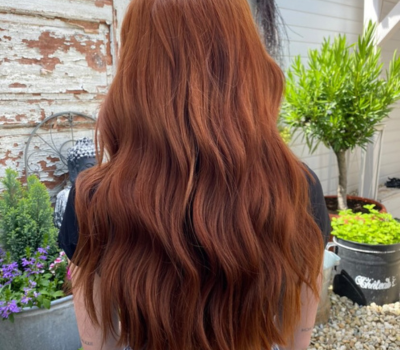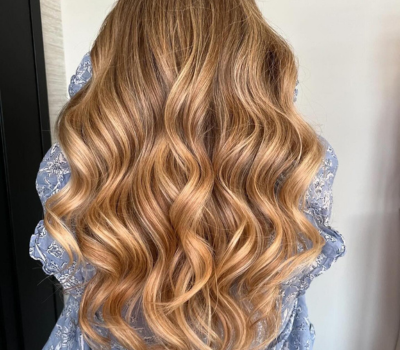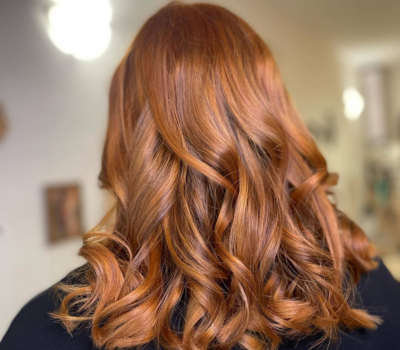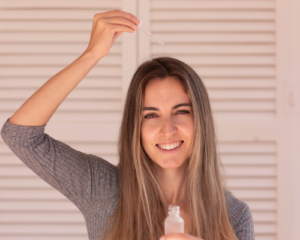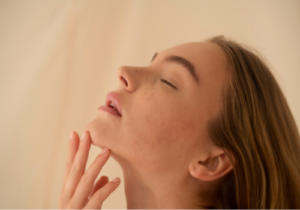Introduction to natural hair bleaching
Bleaching your hair naturally is an increasingly popular method for those who want to avoid harsh chemicals. Not only is this approach gentler on your hair, it's also environmentally friendly. In this article, we'll explore why it can be beneficial to choose natural methods to bleach your hair and the different techniques you can try to achieve effective results.
Why choose to bleach your hair naturally?
Opting for natural methods to bleach your hair offers several significant advantages. Whether you're looking to achieve a lighter shade without compromising the health of your hair, or simply want to take a more environmentally-friendly approach, natural alternatives can offer an ideal solution.
Benefits of natural bleaching
- Better for your hair's health: The chemicals present in traditional bleaches can damage the hair fiber, making hair brittle and fragile. Natural methods, on the other hand, preserve your hair's natural structure, leaving it soft and shiny.
- Respect for the environment: By avoiding chemicals, you also reduce the environmental impact of residues that end up in water and soil. It's a more sustainable choice that helps protect our planet.
- Fewer allergies and irritations: Natural ingredients are generally less irritating to the scalp and skin, reducing the risk of allergies and adverse reactions.
Disadvantages of chemical bleaching
- Damage to hair: The chemicals used in bleaching can weaken hair structure, making it brittle and prone to breakage.
- Scalp problems: Chemicals can cause irritation, burns and other scalp problems, especially for people with sensitive skin.
- Environmental impact: The chemicals used in commercial bleaches can be harmful to the environment, polluting water and soil.
Various natural methods for bleaching hair
Using honey
The bleaching properties of honey
Honey has bleaching properties thanks to its natural hydrogen peroxide content. This component acts as a gentle bleaching agent, gradually lightening hair color without damaging it. In addition, honey is rich in nutrients and antioxidants, helping to nourish and strengthen hair during the bleaching process.
How do I apply honey to bleach my hair?
To use honey as a bleaching agent, mix one part honey with one part distilled water to make it easier to apply. Apply the mixture to damp hair and leave it on for at least an hour. For best results, cover your hair with a plastic charlotte to maximize heat and humidity. Rinse thoroughly with lukewarm water and shampoo as usual. Repeat this treatment once a week for gradual lightening.
Using lemon
How does lemon help bleach hair?
Lemon juice is highly acidic and has natural bleaching properties. The citric acid it contains opens the hair cuticle and reacts with sunlight to bleach hair pigments. This method is ideal for those seeking a light, natural lightening effect.
Correct application of lemon for effective bleaching
To use lemon, mix the fresh juice of two to three lemons with an equal amount of water to dilute the acidity and prevent hair from drying out. Apply the mixture to your hair, concentrating on the areas you wish to lighten. Expose your hair to the sun for about an hour to allow the citric acid to take effect. Then rinse with cold water and apply a moisturizing conditioner to prevent your hair from becoming too dry. You can repeat this treatment every two weeks.
Using chamomile
Why is chamomile effective for bleaching hair?
Chamomile is a plant well-known for its gentle lightening properties. It contains flavonoids which help to gently open the hair cuticle while providing a natural golden hue. Chamomile is also soothing to the scalp and can help improve overall hair health.
Correct application of chamomile for hair bleaching
To use chamomile, prepare a cup of chamomile tea by infusing dried chamomile flowers in hot water for about 30 minutes. Leave to cool, then apply the tea to your hair after shampooing. Leave on for at least 30 minutes, preferably with your hair exposed to the sun for best results. Rinse thoroughly with lukewarm water. You can use this treatment after every shampoo to gradually lighten your hair.
Using cider vinegar
The lightening effects of cider vinegar
Cider vinegar is another natural ingredient that can help lighten hair. Its mild acidity helps open the hair cuticle and dislodge pigments, while deep cleansing the scalp and hair. What's more, cider vinegar balances the pH of the scalp, making it not only healthier but also better able to absorb lightening treatments.
How to apply cider vinegar
To use cider vinegar as a lightening agent, mix one part cider vinegar with six parts water. Apply this mixture to clean, damp hair, making sure it's well saturated. Leave for about 30 minutes before rinsing with cold water. This treatment can be repeated once a week for
See also: How to bleach black hair?
Additional tips for effective natural bleaching
The importance of regularity
Why is it important to be regular with your bleaching treatment?
As with chemical hair treatments, regularity is crucial to achieving optimal results with natural bleaching methods. Natural treatments generally work more subtly and gradually than chemical products, requiring recurrent application to see significant results.
- Maintain lightening: Regular applications will help maintain and accentuate the lightening effect. A single treatment may not be enough to produce a noticeable change, especially on a natural basis.
- Maximizing nutritional benefits: Natural ingredients like honey, chamomile and cider vinegar are rich in nutrients. Frequent application ensures that your hair constantly benefits from these nourishing properties.
Maintaining a healthy diet
The crucial role of diet in hair health
An often overlooked but equally important factor in natural hair bleaching is diet. What you eat directly influences your hair's health, shine and ability to respond positively to bleaching treatments.
- Protein: Hair is mainly made up of the protein keratin. Eating protein-rich foods such as fish, eggs and nuts can help strengthen your hair and make it more receptive to treatments.
- Vitamins and minerals: Vitamins A and C and minerals such as iron and zinc play a crucial role in sebum production and blood circulation in the scalp. Foods such as carrots, berries and spinach can be beneficial.
- Hydration: Drinking enough water is essential to keep hair hydrated, making it healthier and better able to withstand lightening treatments.
Protection against UV and other aggressions
How to protect your hair from UV rays and other harmful elements
When bleaching your hair naturally, it's important to protect it from external aggressors such as UV rays, pollution and chlorine, which can compromise your bleaching efforts and damage your hair.
- Sun protection: Using a UV protective spray can prevent unwanted discoloration and maintain the integrity of your lightened hair. Also consider wearing hats or scarves to minimize direct exposure to the sun.
- Pool water: The chlorine in swimming pools can alter the color of your hair. Rinse your hair with fresh water before and after swimming to minimize chlorine absorption.
- Pollution: Pollutant particles can make hair dull and dry. Wearing scarves or hats can also help protect it from air pollution.
Using natural hair care products
The best natural products for maintaining bleached hair
Using hair care products based on natural ingredients can strengthen your hair and complement your bleaching efforts. Here are just a few examples:
-
- Essential oils: Essential oils such as lavender or rosemary oil can be mixed with your hair products to strengthen and nourish hair. Apply a few drops in your shampoo or conditioner for optimal results.
- Homemade hair masks: Avocado, yoghurt and honey masks can deeply nourish your hair. Apply the mask once a week for softer, shinier hair.
Hair care after bleaching
Moisturizing and nourishing hair
The importance of moisturizing after bleaching
After bleaching, your hair may be drier and need extra moisture. Use moisturizing conditioners or hair masks rich in natural ingredients like shea butter, argan oil or coconut oil to deeply nourish your hair.
Nutrition for bleached hair
After bleaching, it's essential to provide your hair with the nutrients it needs to strengthen and revitalize it. Apply hair serums containing panthenol, keratin or silk proteins to repair and strengthen weakened hair.
Avoid hot tools
Why limit the use of straightening and curling irons?
Heated tools such as straightening irons, curling irons and hair dryers can aggravate hair dryness and cause breakage. Limit their use and opt for heat-free styling to protect your bleached hair.
Use gentle, sulfate-free shampoos
Choosing the right shampoo
Opt for gentle, sulfate-free shampoos that cleanse without altering your hair's natural oils. Sulfates can dry out hair and irritate the scalp, which is particularly problematic for bleached hair.
Avoid aggressive chemicals
The importance of using natural products
After bleaching, avoid harsh chemical treatments such as perms or chemical straightening. These treatments can further damage your hair and compromise the results of your natural bleaching.
FAQ
Does natural bleaching work on all hair types?
Results may vary according to the texture and natural color of your hair. Dark hair may require several applications to achieve noticeable lightening, while light hair may see results more quickly.
How long do I have to wait to see results?
Natural methods work more slowly than chemical treatments. You can start to see results after a few weeks of regular treatment.
Are there any allergy risks with natural methods?
Although natural methods are generally gentler, it's still possible to develop allergies. Do a tolerance test on a small area of your skin before applying a treatment to all your hair.
Can I mix different natural methods?
Yes, you can combine different natural methods to optimize results. For example, you can use honey and lemon together, or alternate between applications of chamomile and cider vinegar.
Does natural bleaching damage the hair?
Natural methods are generally less aggressive than chemical ones, and therefore less likely to damage the hair. However, it is essential to accompany these treatments with a good hair care routine to maintain hair health.
Conclusion
Bleaching your hair naturally has many benefits, both for your hair's health and for the environment. By following the tips and methods described, you can achieve beautiful, natural color while taking good care of your hair. The most important thing is to remain patient and regular in your treatments to see progressive, long-lasting results.
